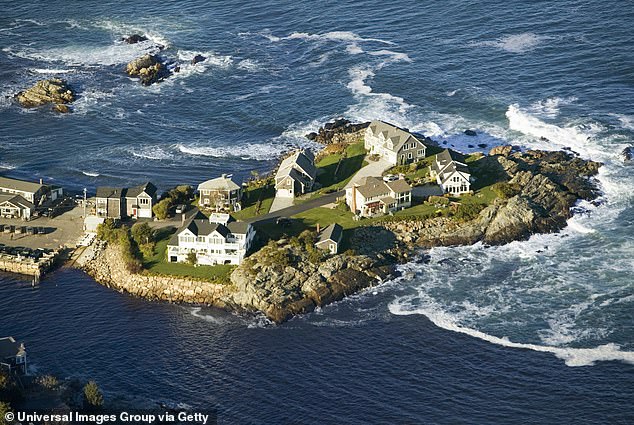The Decline of Vacation Homes: A Market in Freefall
As concerns about a housing market collapse loom, vacation homes are being offloaded at an alarming rate. Recent data reveals a striking drop in second home purchases, highlighting the complexities of today’s real estate landscape.
Unprecedented Decline in Second Home Purchases
The U.S. is witnessing a catastrophic decline in second home transactions:
- In 2024, only 86,604 mortgages for vacation homes were issued, representing a 5% decrease from the previous year and a staggering drop from 258,289 during the pandemic boom in 2021.
- Vacation homes accounted for just 2.6% of all U.S. mortgages last year, halving the percentage seen in 2020.
Causes Behind the Collapse
The ongoing deceleration in vacation home sales can be attributed to several pressing factors:
- High Mortgage Rates: Escalating interest rates have made financing a second home prohibitively expensive.
- Skyrocketing Maintenance Costs: Rising upkeep expenses, especially for properties in high-risk areas, are squeezing owners financially.
- Increased Return-to-Office Policies: The shift back to in-person work has dampened the allure of remote living in sunny locations.
Market Trends: A Retreat
Where once the narrative celebrated remote workers escaping urban centers for idyllic locales, this trend is sharply reversing.
- Florida, once a paradise for second home buyers, is now witnessing a surge in listings. In Miami, vacation home mortgages plummeted 32.2% in 2024. Notable cities like Orlando, Fort Lauderdale, and Tampa are experiencing similar declines.
- The average cost of a second home in 2024 is around $495,000. In the face of such costs, many potential buyers are retreating.
The Rental Income Dilemma
Owners who relied on rental income face additional challenges:
- Decreased Demand for Rentals: Platforms like Airbnb have seen a downturn in activity, leaving landlords struggling to secure tenants.
- High Rental Prices: Current rental rates have outpaced many potential renters’ budgets, reducing the viability of investing in rental properties.
The High-End Market Isn’t Immune
Even affluent buyers are reevaluating their second home investments, citing:
- Expense and Risk: Maintaining a vacation property during tumultuous economic times has become a less appealing prospect. Even wealthier individuals are letting go of these assets.
The Shifting Demographics of Buyers
Recent trends indicate that different demographic groups are impacting vacation home sales:
- Baby Boomers have been the only age group to increase their purchases recently, likely as they look for retreat options in uncertain markets.
- White buyers account for nearly 80% of all second-home mortgages, with Gen X (ages 45-64) being the largest demographic for these purchases.
Regional Insights: Areas Hit Hardest
Florida: A Market in Flux
The Sunshine State, historically a haven for vacationers, is now saturated with listings, with rising insurance premiums and HOA fees driving buyers away.
- In particular, Maine, which once boasted a high second-home ownership rate, is seeing many owners rush to sell amid fears of a market downturn.
Market Dynamics in Maine
Local realtors report:
- Listings have skyrocketed from 1,000 in February to over 3,000 in March, primarily consisting of vacation homes.
- Tom Landry, a Portland realtor, explains, "People are anxious, recalling the 2008 crash. Many prefer to cash out rather than risk further losses."
Conclusion: Where Do We Go From Here?
As the real estate landscape shifts, the days of easy purchases of vacation homes seem to be dwindling. With many focused on finding their first home, the market is poised for further adjustments.
The Bigger Picture
- Adaptation is Key: Investors and homeowners alike must navigate this evolving market with a strategic mindset.
- Long-Term Risks: Economic uncertainties demand careful consideration from potential buyers—particularly those looking for second homes.
As we look ahead, it is crucial to stay informed about market developments and consider how these shifts will affect future real estate decisions. The vacation home dream may not be dead, but it sure is facing unprecedented challenges.


